Related Research Articles

"Every Breath You Take" is a song by the English rock band the Police from their album Synchronicity (1983). Written by Sting, the single was the biggest US and Canadian hit of 1983, topping the Billboard Hot 100 singles chart for eight weeks, and the Canadian RPM Chart for four weeks. Their fifth UK No. 1, it topped the UK Singles Chart for four weeks. The song also reached the Top 10 in numerous other countries.

"Can't Help Falling in Love" is a song recorded by American singer Elvis Presley for the album Blue Hawaii (1961). It was written by Hugo Peretti, Luigi Creatore, and George David Weiss and published by Gladys Music, Inc. The melody is based on "Plaisir d'amour", a popular French love song composed in 1784 by Jean-Paul-Égide Martini. The song was initially written from the perspective of a woman as "Can't Help Falling in Love with Him", which explains the first and third line ending on "in" and "sin" rather than words rhyming with "you".

TCB is a 1968 television special produced by Motown Productions and George Schlatter–Ed Friendly Productions of Laugh-In fame. The special is a musical revue starring Motown's two most popular groups at the time, Diana Ross & the Supremes and The Temptations. Containing a combination of showtunes, specially prepared numbers, and popular Motown hits, the special was taped before a live studio audience in September 1968 and originally broadcast December 9, 1968 on NBC, sponsored by the Timex watch corporation. The title of the program uses a then-popular acronym, "TCB", which stands for "Taking Care of Business".

"Another Part of Me" is a song by American recording artist Michael Jackson. Produced by Quincy Jones, it was released as the sixth single on July 11, 1988, for the singer's seventh studio album, Bad (1987). The song was originally featured in Jackson's 1986 3D film Captain EO. It is the sixth song on the album. As with earlier songs in his career such as "Can You Feel It" and "We Are the World", the lyrics emphasize global unity, love and outreach.
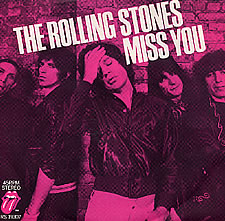
"Miss You" is a song by the English rock band the Rolling Stones, released on Rolling Stones Records in May 1978. It was released as the first single one month in advance of their album Some Girls. "Miss You" was written by Mick Jagger and Keith Richards.
"You Raise Me Up" is a song composed by Rolf Løvland and written by Brendan Graham. It was first recorded by Secret Garden, in collaboration with Brian Kennedy. Although the original version was not a major hit, the song has since been recorded by more than a hundred other artists, most notably American singer Josh Groban in 2003 and Irish group Westlife in 2005. Welsh singer Aled Jones and female Irish ensemble Celtic Woman have also recorded successful covers.
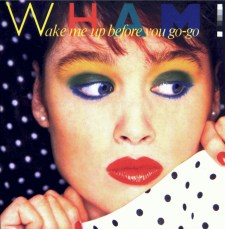
"Wake Me Up Before You Go-Go" is a song by the English duo Wham!, first released as a single in the UK on 14 May 1984. It became their first UK and US number one hit. It was written and produced by George Michael. The single was certified platinum in the US, which at the time commemorated sales of over two million copies. The music video features Michael and Ridgeley wearing oversized message T-shirts created by Katharine Hamnett, starting a craze covered in the 2002 VH1 series I Love the 80s.

"Will You Be There" is a song by Michael Jackson which was released as a single on June 28, 1993. The song is the eighth single from the 1991 album Dangerous. The song gained recognition for its appearance on the soundtrack to the film Free Willy (1993), under the title "Will You Be There ", of which it is the main theme, and was also included in the album All Time Greatest Movie Songs and video game Michael Jackson: The Experience. With the album version clocking in at seven minutes and forty-one seconds, it is the longest song in Michael Jackson's solo discography.
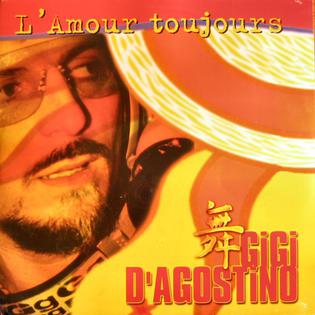
"L'amour toujours" is a song co-written and recorded by the Italian DJ Gigi D'Agostino. The song was released to American clubs and dance radio in July 2000. In Europe, the song was released in October 2000. The song is from D'Agostino's 1999 album of the same name. Ola Onabule is the vocalist of this song. He performs all the vocals on the track and on all versions of the song. It became an international success and a huge hit throughout Europe, Latin America, Asia and Canada. In 2001, the song became extremely popular in the American dance club scene, peaking at number 78 on the Billboard Hot 100 on 15 September 2001. The album version has a different mix, which was used as the single version in the United States except with vocal samples from "Bla Bla Bla" added.

"Lean on Me" is a song written and recorded by American singer-songwriter Bill Withers. It was released in April 1972 as the first single from his second album, Still Bill. It was a number one single on both the soul and Billboard Hot 100 charts, the latter chart for three weeks in July 1972. Billboard ranked it as the No. 7 song of 1972. It was ranked number 208 on Rolling Stone's list of "The 500 Greatest Songs of All Time" in 2010. Numerous other versions have been recorded, and it is one of only nine songs to have reached No. 1 on the Billboard Hot 100 with versions recorded by two different artists.

"Get Down on It" is a 1981 song by American band Kool & the Gang. It was originally released on their Something Special album in 1981. The single was certified Gold by the RIAA.

"The First Time Ever I Saw Your Face" is a 1957 folk song written by British political singer-songwriter Ewan MacColl for Peggy Seeger, who later became his wife. At the time, the couple were lovers, although MacColl was still married to his second wife, Jean Newlove. Seeger sang the song when the duo performed in folk clubs around Britain. During the 1960s, it was recorded by various folk singers and became a major international hit for Roberta Flack in 1972, winning Grammy Awards for Record of the Year and Song of the Year. Billboard ranked it as the number one Hot 100 single of the year for 1972.
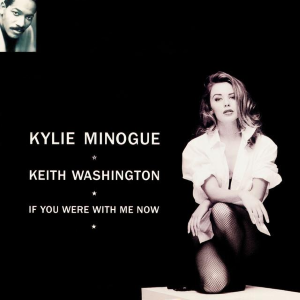
"If You Were with Me Now" is a song written by British songwriting team Mike Stock and Pete Waterman, Australian pop singer Kylie Minogue, and American R&B singer Keith Washington for Minogue's fourth studio album, Let's Get to It (1991). The song was produced by Stock and Waterman. The song was released as the second single in October 1991 and reached number four on the UK Singles Chart, as well as the top 10 in Ireland and the top 30 in Australia. The song is Minogue's first hit single to feature her as a co-writer.

"Say You, Say Me" is a song written and recorded by American singer and songwriter Lionel Richie for the film White Nights. The single hit number one in the US and on the R&B singles chart in December 1985. It became Richie's ninth number-one on the Billboard Adult Contemporary chart. The track is not available on the film's soundtrack album, as Motown did not want Richie's first single following the massive success of his 1983 album Can't Slow Down to appear on another label. It was included by Motown on Richie's 1986 release Dancing on the Ceiling.
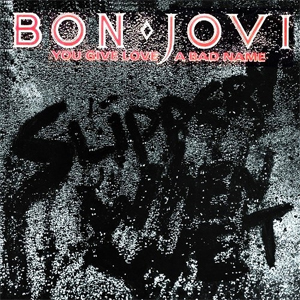
"You Give Love a Bad Name" is a song by American rock band Bon Jovi, released as the first single from their 1986 album Slippery When Wet. Written by Jon Bon Jovi, Richie Sambora, and Desmond Child about a woman who has jilted her lover, the song reached No. 1 on the U.S. Billboard Hot 100 on November 29, 1986, and became the band's first number one hit. In 2007, the song reentered the charts at No. 29 after Blake Lewis performed it on American Idol.

"Can't Stand Losing You" is a song by English rock band the Police, released from their debut album Outlandos d'Amour, both in 1978. The song also was released as the follow-up single to "Roxanne", reaching number 2 in the UK Singles Chart on a re-release in 1979. It was written by the band's lead singer and bassist Sting as a song about suicide.

"Big in Japan" is the debut single of the German synth-pop band Alphaville. It was taken from their 1984 debut album Forever Young.

"I'd Love You to Want Me" is a song by American singer-songwriter Lobo. It was released in September 1972 as the second single from his second album Of a Simple Man.
Diana van Berlo is a Dutch pop singer. She was a member of the girl group Luv' from 1989 to 1992. She scored with the female formation a Dutch and Flemish Top 30 hit with the single "Welcome to my Party" as well as another minor hit song "He's My Guy". After Luv' had disbanded in 1992, she formed with Carina Lemoine the short-lived girl duo Lady's D.C. In recent years, she has been a backing singer and has sung in dinner shows.

"Run to You" is a song by Canadian singer-songwriter Bryan Adams. It was released in 1984 as the lead single from his fourth album, Reckless (1984). The track deals with the subject of infidelity, and is sung from the perspective of a man who declares that he will continue to "run to" his seductive mistress over his faithful partner; critic Ira Robbins for CMJ called it a "cheating classic". In the accompanying music video, however, Adams portrays his guitar as the object of desire.
References
- ↑ "Special D. – You" (in Dutch). Single Top 100.
- ↑ "Special D. – You" (in Dutch). Ultratop 50.